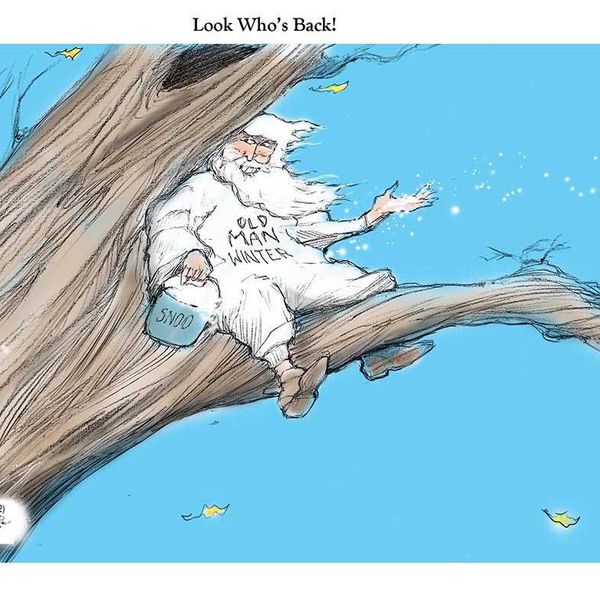
For the sake of America’s poor, a sincere conservative effort to improve the programs that serve them is very desirable – especially so long as Republicans control the House of Representatives, where they habitually yearn to cut or defund those same programs. For months Washington has eagerly awaited the latest version of “compassionate conservatism,” promised by Rep. Paul Ryan (R-WI) and his publicists.
But what the House budget chair and 2012 vice-presidential candidate delivered on Monday must drastically lower any such expectations.
“The War on Poverty: 50 Years Later” produced by Ryan’s House Budget Committee staff is merely more of the same old right-wing propaganda against the safety net, and worse.
Promoted as a scathingly rigorous analysis of the impact of poverty programs since the Sixties, its 200-plus pages cite dozens of academic researchers. Yet it more resembles an ideological tract than the social science meta-study it purports to be. Having determined in advance that nearly all of the nation’s anti-poverty spending is wasteful, counterproductive, and damaging to the work ethic of poor people, Ryan and his staff perform an audacious statistical stunt: They prove those programs have failed by pretending those programs don’t exist.
Poverty in America is officially determined by household income, and any official measurement of the number or percentage of poor Americans – those living “below the poverty line” — is determined by their income alone. But in order to measure the effectiveness of government programs designed to reduce the impact of low incomes, it would seem logically necessary to add in those extra sources of cash, goods, and services. A family that receives food stamps and the Earned Income Tax Credit may be raised out of poverty, even if their income remained below the official poverty line.
But the Ryan report rejects such plain logic, relying instead on the official poverty numbers without assessing the impact of those programs – and then insists that because the number of families with low incomes remains around 15 percent, those programs have failed.
As the Center on Budget and Policy Priorities explains in a pithy review:
The report features the “official” poverty measure even though analysts across the political spectrum — and all three witnesses at a recent hearing that Ryan held, including the two Republicans he invited — have warned that the official poverty measure is deeply flawed for tracking changes in poverty over recent decades and for evaluating the impact of the safety net today. The official measure ignores a very large share of the safety net — including SNAP (formerly known as food stamps), tax-based benefits such as the Earned Income Tax Credit and Child Tax Credit, and low-income housing assistance, among other programs. Using a more comprehensive measure of poverty that analysts broadly favor, known as the Supplemental Poverty Measure (SPM), Columbia University researchers recently found that poverty had fallen markedly, from 26 percent in 1967 to 16 percent in 2012. Ryan buries this fact, failing to note the deep reductions in poverty under the SPM since the 1960s until page 201 of his report.
Moreover, the SPM shows that in 2012, the safety net cut poverty nearly in half — shrinking the poverty rate from 29 to 16 percent. Yet in its 200-plus pages, the Ryan report fails to mention these findings.
In other words, Ryan cooks the books (again!), this time to denigrate programs that the Republicans want to cut drastically, notably SNAP and Medicaid.
If such manipulations aren’t troubling enough, it now appears that some of Ryan’s copious academic citations are also misleading and perhaps fraudulent, with the same distorting effect. According to the Fiscal Times, a group of Columbia University researchers whose work is cited in the report complain that Ryan omits critical data from their study, which examines progress against poverty between 1967 and 2012. For reasons best known to the Wisconsin Republican, his team simply left out the data from 1967 to 1969 – and artfully diminished the very substantial improvement gauged during those years.
Not so impressive for a politician claiming wonk status.
Said a surprised Jane Waldfogel, one of the Columbia professors who co-authored the study cited so misleadingly by Ryan: “In my experience, usually you use all of the available data. There’s no justification given. It’s unfortunate because it really understates the progress we’ve made in reducing poverty.”
Like any faithful House Republican, Ryan and his staff also ignore the beneficial impact of health care reform. Based on completely outdated figures, they insist that poor families are discouraged from working (as if there are plenty of jobs) because they fear making too much money to qualify for Medicaid. But as CBPP also points out, that problem has been erased by the Affordable Care Act, which sharply increases the amount that a household can earn before losing Medicaid to 136 percent of the poverty line. Above that line, a working family can qualify for Obamacare subsidies and retain its insurance. But the Ryan report conceals that salient fact, too.
The report does offer a few brighter moments — including its advocacy for an expansion of the Earned Income Tax Credit, which is proposed by President Obama in his budget today as well. Time will tell whether House Republicans join the White House to improve that traditionally bipartisan program, a favorite of both Presidents Reagan and Clinton. A safer bet is that they will surrender instead to the Tea Party caucus, which abhors any cooperation with this president.
Either way, there is nothing in Ryan’s latest effusion to dispel the impression of intellectual impoverishment left by his first foray in the direction of “compassionate conservatism” – always an embarrassing oxymoron, and now a synonym for scholarly deception as well.
Photo: Speaker Boehner via Flickr








